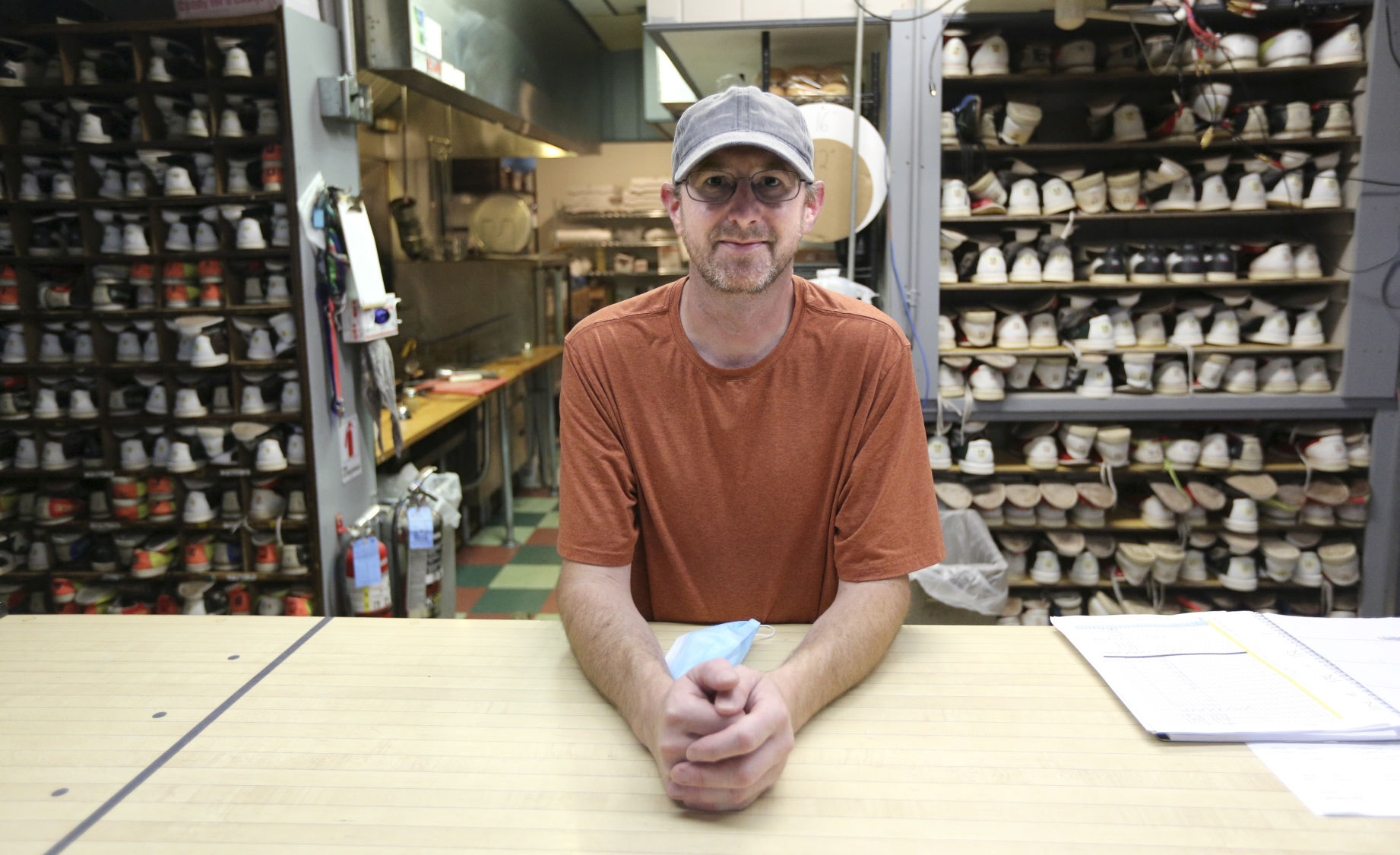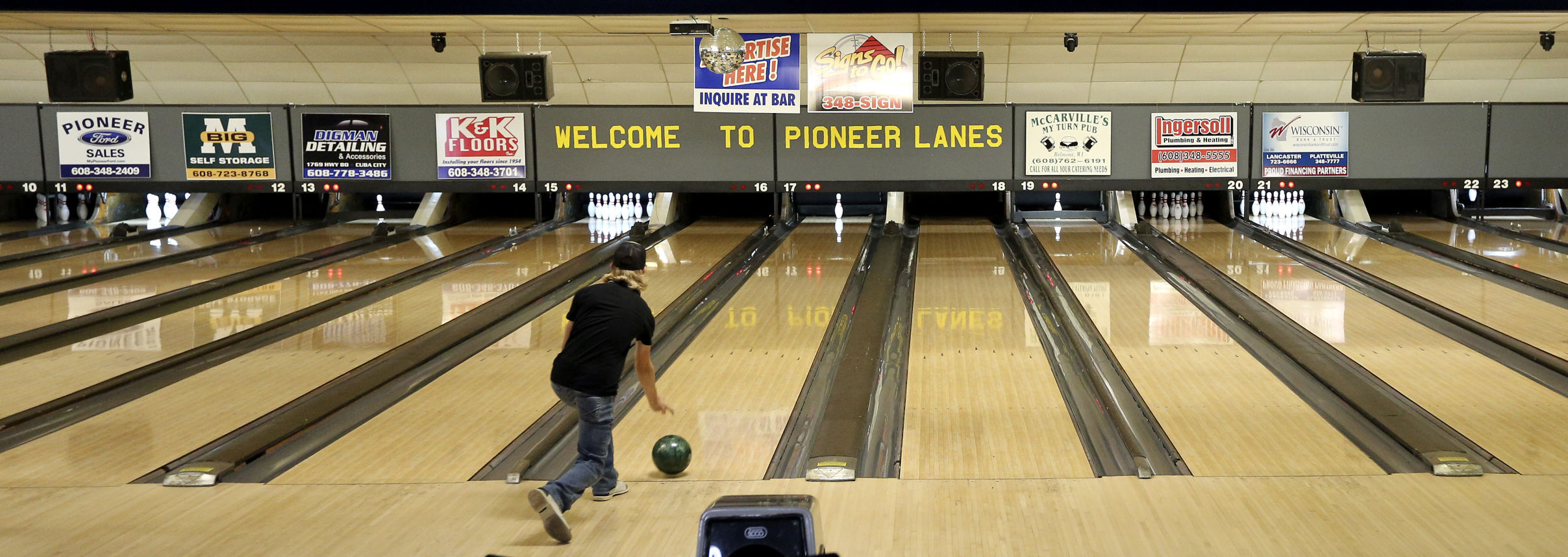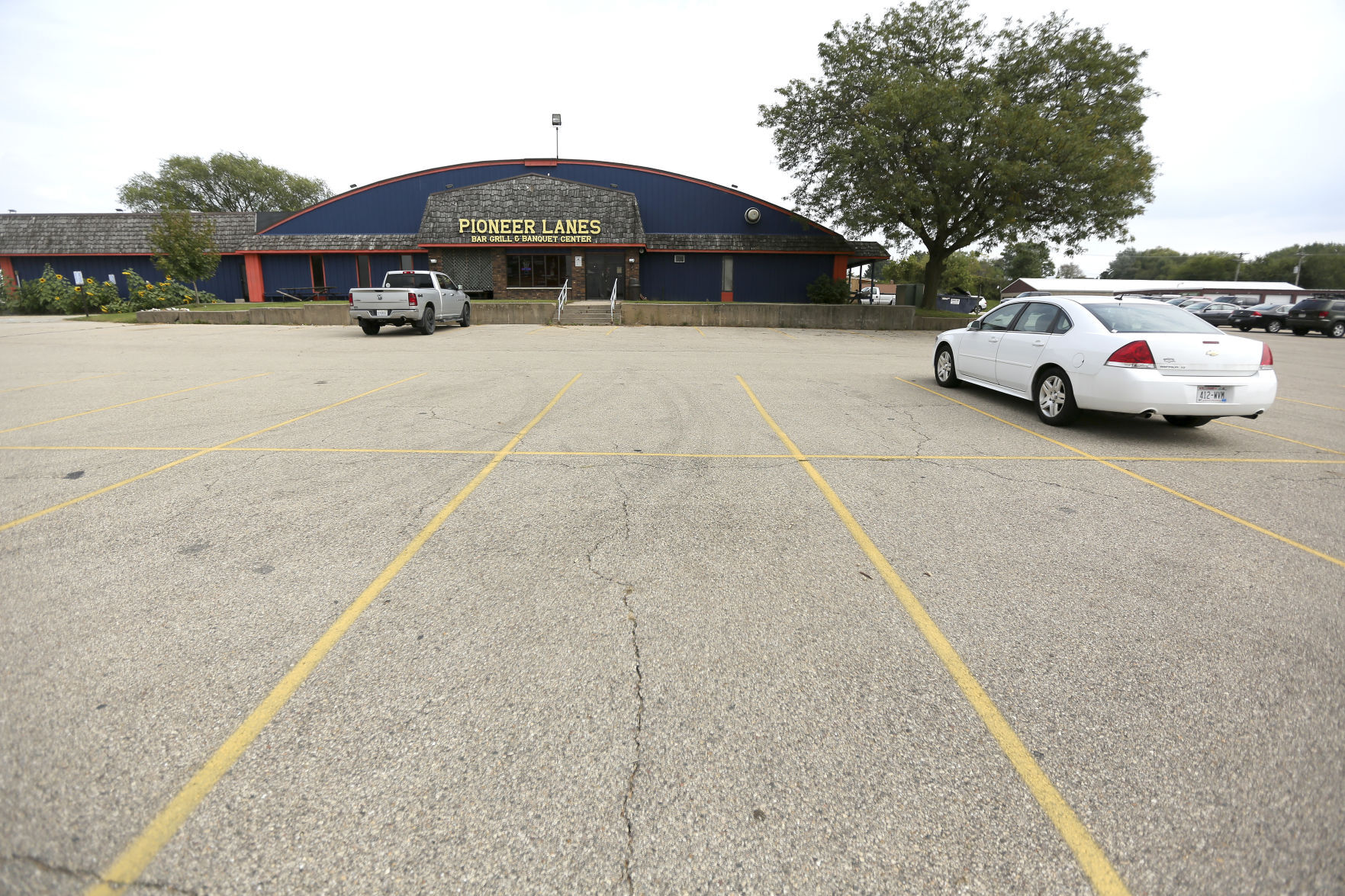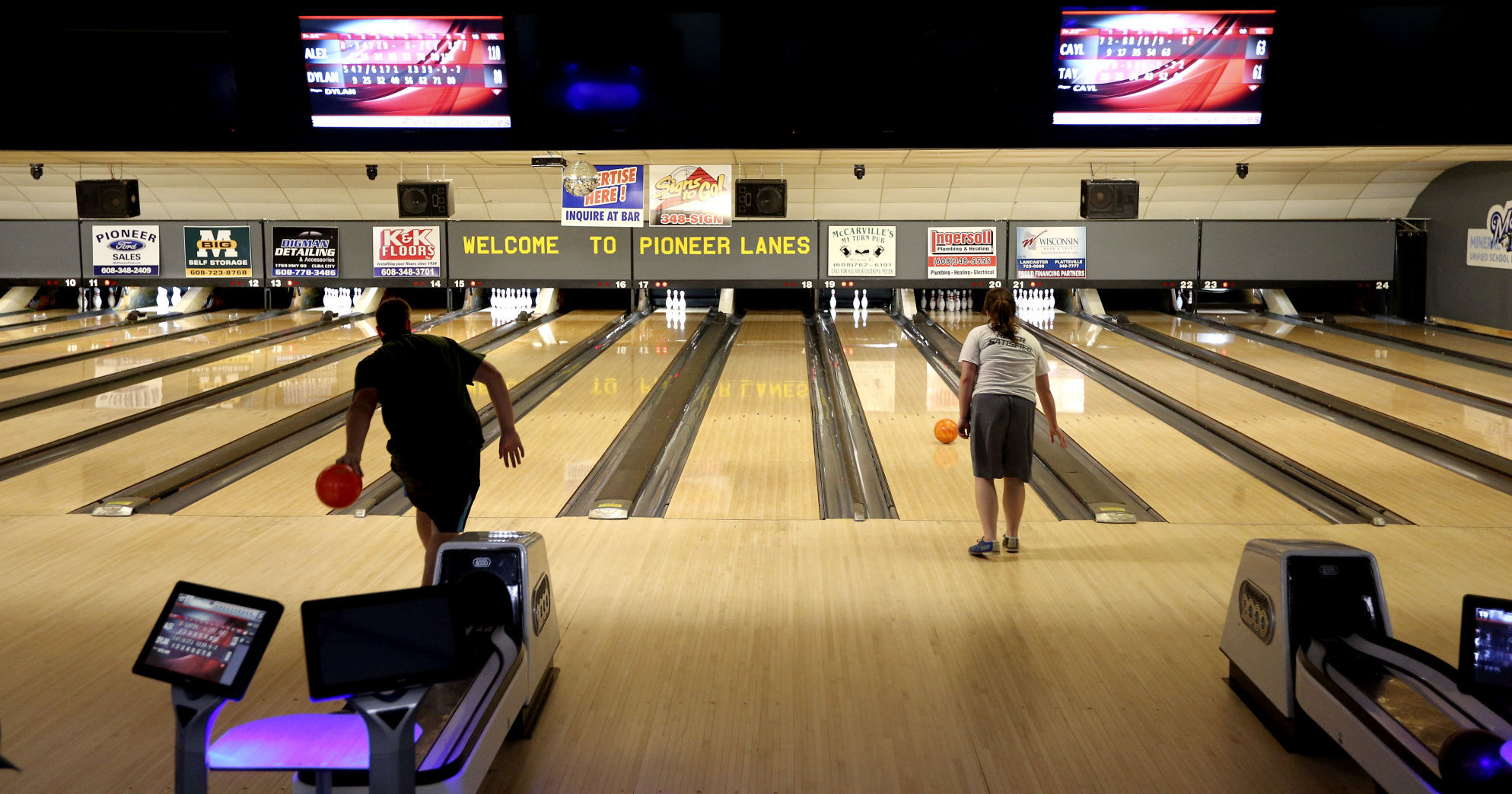There is no such thing as a good time for a business to shut down.
But for local bowling alleys, the time at which the COVID-19 pandemic arrived in the U.S. couldn’t have been worse.
Joe Haack, the owner of Pioneer Lanes in Platteville, Wis., was forced to close his business in March because of the pandemic. He said the closure began right as the bowling alley was about the begin its busiest three-month stretch, a portion of the year typically marked by large banquets and the culmination of league play.
“Leagues are our bread and butter,” he said. “Revenues from the spring are typically what gets us through the summer. When we had to close during that period, it really put us behind (financially).”
Pioneer Lanes has since reopened, but it is among the many bowling alleys that have struggled to stay afloat during the pandemic.
Creslanes Bowling Alley and Pro Shop, 255 S. Main St. in Dubuque, closed last month after serving the area for more than six decades.
At the time, officials called the novel coronavirus the “primary driver” in the decision to shutter the bowling alley.
More than six months after COVID-19 changed every facet of life in the U.S., local bowling alleys have taken a variety of approaches to doing business during the pandemic.
NEW NORMAL
At Fischer Lanes & Lounge, 880 Locust St. in Dubuque, company officials waited months to reopen even after government restrictions had been lifted.
Manager Alex Helbing said reopening the alley simply didn’t seem worth it during the summer months, which generally mark the slowest time of the year for bowling anyway.
“Many people are camping or spending time on the river. They just aren’t ready to spend a day inside bowling in the summer,” he said.
Fischer Lanes reopened early this month and now is adjusting to a new sense of normalcy.
Helbing said employees are taking extra measures to ensure that all products are properly sanitized. When bowlers are done for the day, they are encouraged to leave the shoes and bowling balls at the end of the lane, ensuring that staff will clean them before they are returned to general use.
It’s just another small measure to make sure that the spread of COVID-19 is kept at bay.
“At the end of each pair of lanes, we have our COVID guidelines printed out,” explained Helbing. “We feel we are doing a good job of letting people know about all the steps we are taking.”
Sometimes, being careful means taking a revenue hit, however.
During league nights, Fischer Lanes is no longer filling all 14 lanes with teams. Instead, it is asking teams to bowl in two separate shifts throughout the night, an accommodation that ensures proper social distancing.
Helbing said some bowlers have dropped out of their leagues as a result, expressing reservations about bowling at later times in the evening.
He said it is difficult to forecast what the coming months will hold.
“We’re hoping to be busy and have as many people here as we can,” Helbing said. “But I do anticipate it will be a bit slower this year.”
HOPING FOR THE BEST
Despite the industry’s recent struggles, a new business featuring a bowling alley is slated to open in the coming months.
A new “family entertainment center” will open at some point this fall on Commercial Court in Peosta, Iowa, according to owner Dave Pettera.
The venue will feature bowling lanes, an arcade and a variety of other family-friendly amenities, he said.
Pettera emphasized that staff will closely follow Centers for Disease Control and Prevention guidelines and make sure the facility is properly sanitized.
He is confident that business will boom once his doors open in Peosta.
“I believe people have been trapped inside, they want to get out more, and they want to do things,” he said. “I believe we’re not going to have a problem getting new customers.”
He has similar thoughts on the company’s recruiting efforts. The venue will hire 20 to 30 employees.
“Our phones and email have been blowing up with people looking for part-time work and full-time (jobs),” he said.
At Pioneer Lanes, Haack isn’t sharing the same level of optimism.
But after being transparent about his business’ struggles, he received a recent outpouring of support.
Haack recently posted on social media about how the dearth of business in recent months had negatively affected the bottom line at Pioneer Lanes. He outlined that league bowling was down 45% compared to the prior year, food and beverage revenue was down 85%, and open bowling receipts were almost nonexistent and asked for the community’s support in keeping the business open.
He received calls from residents offering to help and customers placing to-go orders.
“There has been an amazing response,” he said. “The community is rallying around us.”
Haack hopes this will help the business stay afloat until things return to normal — whenever that might be.
“We’re probably not looking at a sense of normalcy until next summer,” he said. “But I would like to see it before then.”





